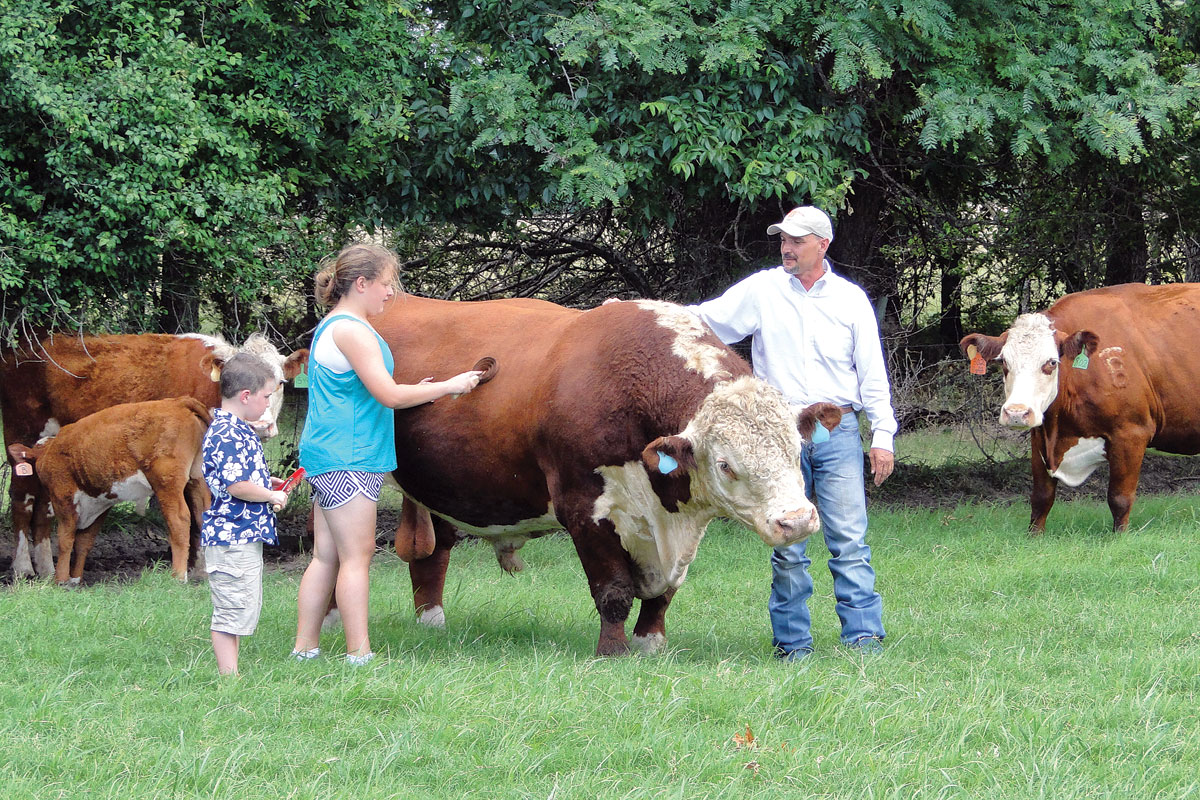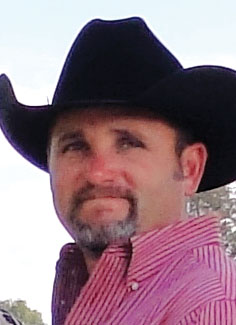
Kris Webb wanted to work in wide-open spaces, not a cubical
FARMINGTON, ARK. – Kris Webb grew up on small commercial cattle farm in Farmington, Ark. He was a good basketball player and president of his FFA chapter before attending Arkansas Tech University in Russellville on a full scholarship.
He met his future wife Jamie the first week there. They married a week after graduating when Kris began a job in corporate America. Over the next four years, he learned what was important to him: family and being outside.
For Kris to be able to focus on family while earning his living working outside, the couple decided to raise cattle, a lifestyle Kris had loved all his life while totally new to his young bride.
“My dad gave me the best advice I ever received, something I really took to heart,” Kris said. “He told me that if you go into farming, you stay in and work through the ups and downs.”
Kris bought 40 acres he had grown up on from his parents, Jerry and Brenda. The first few years were difficult with Kris working odd jobs as a handyman as well as repairing homes before sale by realtors. The flexible hours were much better for him and he could spend time with his family including visiting his father, who had been diagnosed with Parkinson’s, every day and being involved with his children’s activities.
“My father was my mentor with a wealth of knowledge to share as I stepped into this new direction and I wanted to do the same for my children,” Kris explained.
“All Papa’s knowledge paid off as we began building our new life which provided our three children (Gavin, Grace and Mabry) with a strong work ethic and value system,” Jamie added.
Kris needed to maximize cattle profits to grow the business, but knew genetic changes do not happen quickly. Aware that the American Angus Association had created a thriving market, he decided to move in that direction and eventually focused on Pharo Cattle Company bulls, a bloodline that gained rather than lost weight during breeding season and passed on high grass efficiency. He also selected for low birthweight and fly resistance. He selected bulls for midsize mommas weighing approximately 1,250 pounds.
Kris runs two breeding seasons, fall and spring, with fall breeding being the largest When calves weigh approximately 300 pounds, he initiates a vaccine program using black leg, IBR and pink eye vaccines. At the same time, he castrates the bull calves and decides when he was going to sell steers based upon his prediction of the markets while retaining heifers for his genetic improvement program.
Cattle are shipped to Missouri for sale because Kris can cover the shipping and still earn the most profit. A two-year-old sideline income is from Illinois River Beef, a web-based business where individuals can purchase of farm-fresh beef .
Through the years Kris and Jamie have acquired land in several other locations including one inside Benton County where he rents an additional adjacent 200 acres. That location is where the couple plans to build their forever home and nearby shop. The goals are to build a gathering place for family and friends and to construct adequate covered storage for equipment.
One advantage of the additional land purchases is the capacity to raise all the hay needed, hopefully with some in reserve. Cool season grasses are clover, hops, crimson clover and fescue, land is drilled with ryegrass. Summer grasses are Bermuda and crabgrass with some Johnson.
“The balance between maintaining clover and weed control is difficult so we brush hog and apply weed control only every two or three years to keep the seed banks of weeds at bay while not destroying the clovers,” Kris said.
The couple hopes to have an all-black herd through continued genetic work. The current herd is at 95 percent black, excellent progress but not quite there yet. They also hope to develop the genetics and numbers to sell all cows at 6 or 7 years of age and replace them with their own heifers, something they can only partially do at this point. Cows are kept if they consistently raise strong and healthy calves with one of their current females now 17 years old.







